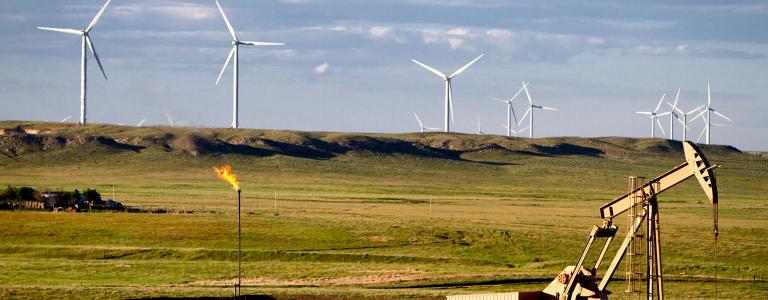Fossil Fuel Subsidy Reform: Moving from commitments to action in 2022
Despite long-standing commitments in international forums, governments around the globe continue to spend hundreds of billions each year to subsidize fossil fuels, further encouraging the wasteful consumption of fossil fuels and slowing the uptake of clean alternatives. 2022 must be the year that governments shift from commitments to action.
This virtual event, organized by the Friends of Fossil Fuel Subsidy Reform (FFFSR) in collaboration with the International Institute for Sustainable Development’s Global Subsidies Initiative (IISD-GSI), provides an update on the state of fossil fuel subsidy reform and what to expect in 2022; a pivotal year in international climate change diplomacy.
During this session, government representatives from the 2022 G7 and G20 presidencies present how fossil fuel subsidy reform and the clean energy transition fit into their agendas. A representative from the 2021 Asia-Pacific Economic Cooperation (APEC) presidency also outline achievements made last year and the necessary next steps. Researchers from IISD-GSI and other partners then highlight the latest estimates of global fossil fuel subsidy spending. They also look back at the outcomes of the G7, G20, and UNFCCC processes in 2021, including the milestone Glasgow Climate Pact commitment to phase out inefficient fossil fuel subsidies. Finally, speakers look at what to expect from the G7, G20, and UNFCCC in the year ahead.
Agenda
Call to Order
Peter Wooders, Senior Director, Energy, IISD
Opening Remarks
HRH Prince Jaime de Bourbon de Parme, Climate Envoy of the Netherlands
Government Perspectives
Fossil Fuel Subsidy Reform (FFSR) at the G7 in 2022
Birgit Schwenk, Director General for Climate Policy, Federal Ministry for Economic Affairs and Climate Protection, Germany
FFSR at the G20 in 2022
Andi Novianto, Deputy Minister, Assistant Deputy for Oil and Gas, Mining, and Petrochemical at the Coordinating Ministry of Economic Affairs, Indonesia
FFSR at the APEC in 2021 and Next Steps
Vangelis Vitalis, Deputy Secretary Trade and Economic, New Zealand Foreign Affairs and Trade, and APEC 2021 Senior Officials Meeting Chair
Civil Society Perspectives
FFSR Outcomes at the G7 and G20 in 2021 and Expectations for 2022
Ipek Gencsu, Senior Research Fellow, Climate and Sustainability, Overseas Development Institute (ODI)
FFSR Outcomes at COP26 and Expectations for 2022
Jennifer Allan, Strategic Adviser and Team Leader, Earth Negotiations Bulletin, IISD
Update of the Fossil Fuel Subsidy Tracker
Lourdes Sanchez, Senior Policy Advisor and Lead, Indonesia, IISD
Q&A
Moderator: Peter Wooders, IISD
Closing
Upcoming events
Building Bridges: The State of Nature-Based Investments
Join us for a panel at the Building Bridges conference in Geneva, Switzerland, to discuss the state-of-play of nature-based investments and the potential opportunities they present.
Through Her Lens: Women leading change in sustainable agriculture and market inclusion
Despite the critical role that women play in agricultural production, they still do not have equal access to global agricultural supply chains on terms that benefit them.
A Municipal Perspective on the Value of Natural Infrastructure
This webinar will showcase examples the cost-effectiveness of natural infrastructure from a municipal perspective. Focusing on what municipalities need—what evidence and numbers they rely on, and what tools and planning processes are required to ensure that natural infrastructure is assessed alongside traditional infrastructure for cost-effectiveness.
